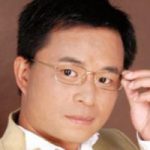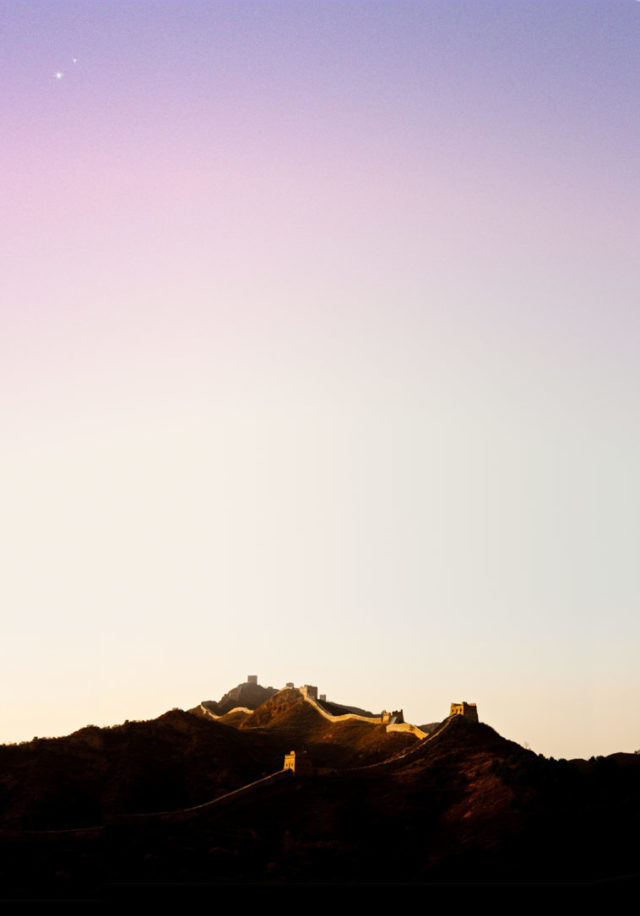Hao Qun, winner of the 2010 People’s Literature Prize (Renmin wenxue jiang 人民文学奖), is the author of five novels that explore government corruption and popular disillusionment written under the pen name Murong Xuecun. He once claimed a total of 8.5 million followers of his four microblog accounts, hosted respectively on Sina, Tencent, Netease and Sohu. On 11 May 2013, all four accounts suddenly disappeared. No official explanation was given. Murong, who has earned a reputation as one of China’s foremost critics of censorship, speculated that a post mocking the ‘Seven Things That Should Not be Discussed’ (qige buyao jiang 七个不要讲, also known as qige buzhun jiang 七个不准讲, see page 118), was the likely cause. In his post he said:
No discussion of universal values. No discussion of a Free Press. No discussion of civil society, past mistakes of the Communist Party, capitalist cronies, or judicial independence. Really, one sentence says it all: No discussion of being civilised.
不准讲普世价值、不准讲新闻自由、不准讲公民社会、不准讲公民权利、不准讲党的历史错误、不准讲权贵资产阶级、不准讲司法独立。概括起来其实就是一句话:不准讲文明。
Deprived of his habitual platforms, Murong wrote an open letter to the un-named censor who silenced him, and published it on the Chinese section of the New York Times website on 20 May 2013. The translation reproduced below was uploaded to Scribd.com by an anonymous Internet user. Minor stylistic modifications have been made to the translation.
Dear Nameless Censor,
On 11 May 2013, you ordered the termination of all my microblogs on Sina Weibo, Tencent, Sohu and NetEase, deleting every single entry I ever posted. On 17 May, in the afternoon, you ordered the reinstatement of all my microblogs, but a few hours later, in the early hours of 18 May, you ordered my accounts be shut down again. You have been unpredictable from the very beginning. To date, I have received no explanation or notification about what happened to my microblog accounts. I do not know your name, which organisation you work for, or even if you are a man or a woman, but I do know you will read this letter.
To you, I am just another microblogger whose accounts can be deleted at any time. But for me, those four microblogging accounts have become a part of my life, the place where I meet with my family and friends. In this virtual space, we greet each other, share thoughts, and sometimes exchange jokes. These microblogs are also my most important platform to communicate with more than 8.5 million followers. Over the past three years, I posted about 200,000 characters, with each post limited to 140 characters and every word was chosen with painstaking care. These posts were notes on books I have read, my thoughts about life, commentaries on current affairs, and flashes of inspiration. These microblog entries, should not have been deleted because not a single word violated any law or threatened anyone’s safety.
Dear Nameless Censor, perhaps you will never understand that to a writer, the words he writes are more important to him than his life. On the evening of 11 May, my words accumulated over the years in these blogs disappeared because of a single command from you.
I am sure there are reasons for your action. But no matter what the reasons might be, I hope you will honestly tell me what they are and apologise to me for what you did.
Dear Nameless Censor, I know you possess enormous power but you have no right to delete what I write, and you have no right to intrude into my life. Most importantly, you have no right to deprive me of my freedom of speech, because freedom of speech is my inviolable constitutional right. I know that in this country, at this time, you are far more powerful than me – I am merely an ordinary citizen, a writer who writes for a living, while you, a nameless censor, have the power to push me off a cliff with just one phone call. Still, I am writing you this letter because I believe your awesome powers are only temporary. You can delete my words, you can delete my name, but you cannot snatch the pen from my hand. In the years to come this pen of mine will fight a long war of resistance, and continue to write for as long as it takes for me to see the light of a new dawn. I believe you will not be able to hide in the shadows forever because the light of a new dawn will also expose the place where you are hiding.
Dear Nameless Censor, when that time comes, the whole world will know who you are.
For far too long, you and your colleagues have devoted all your efforts to suppressing freedom of speech in China. You have created a never-ending list of sensitive words, deleted countless articles, and closed down thousands of microblog accounts. You have constructed the Great Firewall of China and kept the rest of the world at bay behind a wall of ignorance, turning China into an information prison. You censor articles and delete words. You treat literature as poison, free speech as a crime, and independent thinkers as your enemy. Thanks to your efforts, this great nation of 1.3 billion people does not have a single newspaper that can express objective views, nor a single TV station that broadcasts objective programs, or even the smallest space where people can speak freely. This is your legacy, dear Nameless Censor. If this were a war, then standing in front of your gun is not just me. You are also making yourself the enemy of our beautiful language, our nation’s future and the progress of mankind.
Perhaps you believe you are standing on the moral high ground, and believe what you are doing is for the sake of national security and a harmonious society. I hope, however, you can understand the following: China doesn’t just belong to you and the organisation you work for. This nation is home for 1.3 billion Chinese people. Therefore, China’s national security must guarantee that all people in this nation are free of fear, not just the few who are in power. True stability is based on the happiness and freedom of the people and not derived from obedience enforced down the barrel of a gun. True harmony is a raucous affair, not silence enforced by clutching at people’s throats. The power you have been given is supposed to protect the freedom of your people, not take that freedom away. Your responsibility is to help our language flourish, not kill it.
One day in the future you may defend what you have done by saying: I knew it was wrong but I had to execute my duty. Maybe this is a mitigating factor but you will not be exempted from moral responsibility. Among the blog entries you deleted, there was this:
If you were a guard patrolling the Berlin Wall in East Germany, when you saw someone trying to climb over the wall, your responsibility was to aim your gun slightly higher than you were trained to do; if you were a guard patrolling a village in China in 1960 during the great famine, when you saw a group of starved countrymen trying to flee the village, your responsibility was to turn a blind eye and let them go; if you were a city management officer whose job is patrolling the streets to ensure they are free of unlicensed vendors, when you are ordered to chase vendors who are only trying to earn a humble living, your responsibility is to run slower. When your normal duty becomes a crime, then high above your duty there is a loftier principle that we all must respect: our conscience as a member of humanity.
I now dedicate these words to you, dear Nameless Censor. I hope that the next time you are on patrol for sensitive words you will aim your gun slightly higher and run a little slower because of your conscience as a member of humanity.
Or perhaps you will say, I did not actively do evil but I had to follow orders. This is not an acceptable excuse, dear Nameless Censor. You are an adult – you have eyes that see, ears that hear and a brain that can think. You are supporting these orders from above by following them. If you know these orders are wrong, then please tell me why do you support them? Clearly, what you are doing is solely to protect your own power and status and you will not stop. I have suffered because of you but please tell me, how many more people have to be sacrificed to serve your personal interests? Please look closely at these names:
Ran Yunfei, writer, scholar
Zhang Xuezhong, professor of law
Xiao Xuehui, professor of ethics
Song Shinan, scholar
He Bing, professor of law
Si Weijiang, renowned lawyer
Shen Yachuan, veteran journalist
Xiang Xiaokai, scholar
Wu Wei, scholar
Wu Zuolai, scholar
Teng Biao, renowned lawyer, scholar.
Over a period of just a few days, these people’s Weibo accounts have also vanished at the end of your gun muzzle. This is your legacy, dear Nameless Censor. Please look at the list again, put your hand on your heart and tell me, and tell yourself and the whole world, what crimes these people have committed. Why did you censor their works and blacklist their names? What legal procedure did you follow and which criteria were violated to provoke you to cock your gun? Which article of the law was broken to oblige you to pull the trigger?
You of course know that people fear being shot in the dark. Each deletion is a victory for you and you are by now probably accustomed to the silence of your victims. This silence encourages you to be more determined and more brutal. However, this is not your victory because in the mist of this silence, millions of people are raging, resisting, and cursing and a huge storm is brewing. I hope that from this day hence you will receive a letter like this one every time you delete someone’s writings. I hope that when you finally retire from your position these letters, piled up like a mountain, will burden you for the rest of your life.
Dear Nameless Censor, this burden will be your legacy too.
I am fully aware this letter will cause me nothing but grief: I may not be able to publish my writings in China, my words may be expunged and deleted, and my future path may become even more difficult, but I must tell you: I once had fear, but from now on, I am no longer afraid. I will be here waiting for sunlight to brighten the world, to brighten people’s hearts, and light up the place where you hide. That is the difference between you and me, dear Nameless Censor – I believe in the future, while all you have is the present.
The long night is almost over;
I wish you peace.
Sincerely yours,
Murong Xuecun
[Note: Murong Xuecun’s microblogs remain inactive, although he began making occasional posts to Twitter after his Weibo accounts were terminated.]




